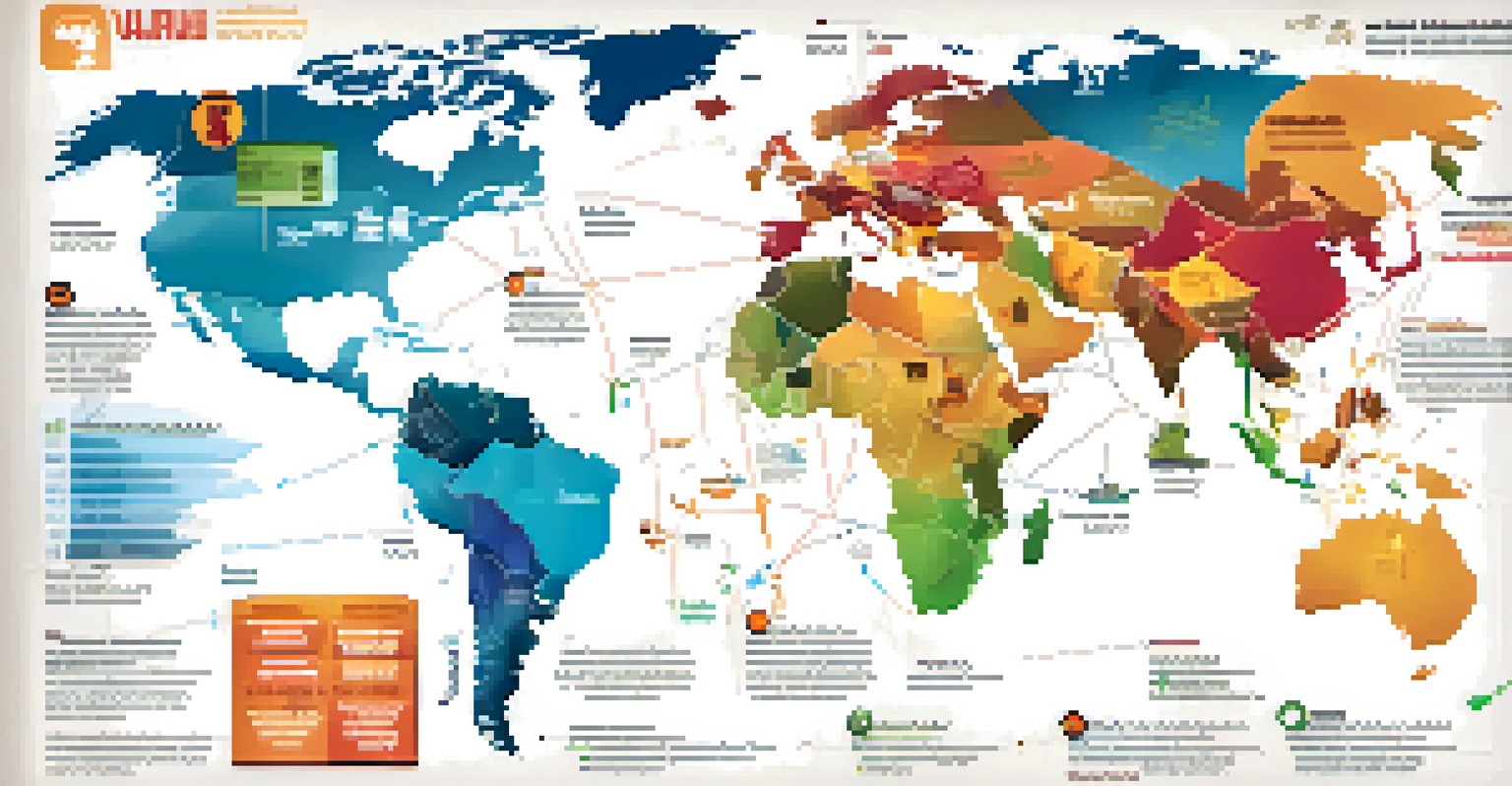Essential Vaccinations for Safe International Travel Health

Understanding the Importance of Travel Vaccinations
When planning an international trip, getting vaccinated is key to your health. Vaccinations help prevent the spread of infectious diseases that are more common in certain regions. Without these vaccinations, you might expose yourself to illnesses that could ruin your travel plans.
An ounce of prevention is worth a pound of cure.
Imagine preparing for a big trip only to fall ill because you didn't take the necessary precautions. By understanding the importance of vaccinations, you can travel confidently, knowing you're protected against diseases specific to your destination.
In many cases, certain countries even require proof of vaccination for entry. This makes it essential to research and get the appropriate vaccines before your adventure begins.
Common Vaccinations Recommended for Travelers
There are several vaccinations that are commonly recommended for international travelers. For instance, vaccines for hepatitis A and B, typhoid, and tetanus are frequently advised for those heading to certain regions. The specific vaccines you might need will depend largely on where you are traveling and your personal health history.

Think of these vaccines as a shield against potential health threats. Getting vaccinated is like having an umbrella in case of rain—it's better to be prepared than to be caught off guard.
Vaccinations Protect Your Health
Travel vaccinations are essential to prevent exposure to infectious diseases while traveling.
Consulting with a healthcare provider can help you determine which vaccines are necessary for your trip, ensuring you’re well-prepared and protected.
Vaccination Timing: When to Get Vaccinated
Timing is crucial when it comes to vaccinations for travel. Some vaccines require a series of shots over several weeks, while others might take time to become effective. Ideally, you should start your vaccination process at least 4 to 6 weeks prior to your departure.
Traveling – it leaves you speechless, then turns you into a storyteller.
Consider this like preparing for a marathon; the earlier you start training, the better your performance on race day. Similarly, giving your body ample time to build immunity through vaccinations ensures you stay healthy during your travels.
Make sure to check the specific recommendations for your vaccines and plan accordingly to avoid any last-minute rush.
Destination-Specific Vaccination Requirements
Different countries have different vaccination requirements based on prevalent diseases. For instance, if you’re traveling to certain parts of Africa or South America, you may need a yellow fever vaccination. It's vital to check the latest travel advisories for your destination.
Think of this as packing a suitcase with the essentials for your trip; you wouldn't want to leave behind something crucial. Similarly, getting the right vaccinations ensures you’re equipped to handle any health risks.
Plan Vaccination Timing Wisely
Starting vaccinations 4 to 6 weeks before departure ensures your body has time to build immunity.
Always stay updated on any changes in vaccination policies, as they can vary and may be updated frequently.
Managing Potential Side Effects of Vaccinations
Like any medical procedure, vaccinations can sometimes have side effects. Common reactions might include soreness at the injection site, mild fever, or fatigue. However, these side effects are usually temporary and are a sign that your body is building protection.
Consider these side effects as a small price to pay for the peace of mind that comes with being vaccinated. Just like a workout might leave you sore but ultimately strengthens your body, the temporary discomfort of a vaccine means you're on your way to better health.
If you have concerns about side effects, it’s a good idea to speak with your healthcare provider.
Keeping Vaccination Records for Future Travel
Maintaining an accurate record of your vaccinations is essential for future travels. Many countries require proof of vaccination, so having this documentation can make your travel experience smoother. Consider creating a travel health record that you can easily access when needed.
Think of your vaccination records like a passport; both are essential for crossing borders. By keeping track of your vaccinations, you ensure that you have the necessary documentation ready for your next adventure.
Keep Vaccination Records Handy
Maintaining accurate vaccination records is crucial for smooth travel and meeting entry requirements.
Digital records can also be helpful, so consider storing a copy on your phone or in the cloud for easy access.
Resources for Finding Travel Vaccination Information
Numerous resources are available to help you find the vaccination information you need. The Centers for Disease Control and Prevention (CDC) and the World Health Organization (WHO) offer valuable guidance on travel vaccinations. These organizations provide updated information about health risks and recommended vaccinations based on your travel plans.
Navigating this information can be like using a map for your journey; it helps you find the best route to your destination. By leveraging trusted resources, you can make informed decisions regarding your health.

Don't hesitate to reach out to your healthcare provider for personalized advice and recommendations tailored to your travel itinerary.